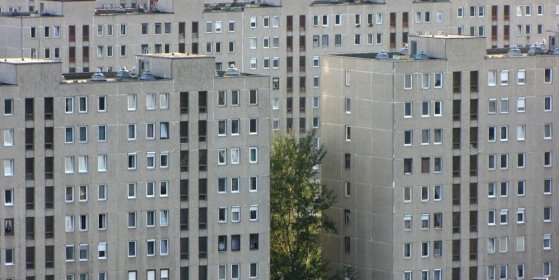
What We Do
About Us
“Family houses, white picket fences, well-kept gardens, and weekend relaxation. Almost everyone thinks of these when they hear the name ‘Kertváros’
Kertváros in Pécs is not like this; it is a massive residential estate with large blocks of flats.
This is one of Hungary's largest residential estates; construction began in the 1960s and was completed in the early 1990s, during the socialist era. The name was originally Lvov-Kertváros, as Lvov was Pécs's Soviet twin city. The majority of the buildings are ten stories tall, however there are also four-story buildings, though in smaller numbers.
This is not a wealthy neighbourhood; the flats here are the most affordable in the city, with the exception of the neglected periphery areas. The majority of residents are workers, many of whom work 12-hour days.
Many people reside in a compact area, in large apartment buildings that are mainly separated from one another. The majority of people do not even know their neighbours. The working-age population works and only returns home in the evenings, while the younger generations gather on the squares in groups to build communities.
The issue worsened when the illegal squatters were evacuated from the city centre. It is not a safe area in the city, especially after dark. Alcohol, drugs, and crime are major issues in this area, making it difficult to locate opportunities for productive pastime activities.
There is a large shopping mall on the outskirts of Kertváros with a cinema, and there is a theatre within a school with few shows, but other than that, there are largely pubs.
The majority of the kids are home alone after school. Their home surroundings are unsafe, thus their parents do not allow them to go out with a light heart.
There aren't many churches; for this many people, there's just one Catholic, one Protestant, and one Baptist one, all of which are on the outskirts of Kertváros.
All adults, children, and youth require a constructive, preserving community where they can see the possibility of a better existence. They need God.
So there's a city, but no gardens. Our goal is to have a garden here, but not just in the physical sense; the elderly who come from other parts of the city or adjacent villages would benefit greatly from a communal garden, which could serve as a terrific location for community for all ages. But we are talking about something greater.
We believe that God intended Eden to be mankind's home, where we may dwell in community with Him. He wants all that to be the same now, so God's Kingdom can begin in our hearts here on Earth. God loves Kertváros and the people that reside there. He understands their needs and wants to meet them. Every day. He is the only one capable of building Eden in Kertváros, and He wants to do it for these people. All we desire is to open our hearts to this plan.”